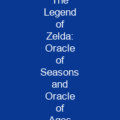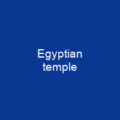What is an Oracle?
An oracle is a person or thing considered to provide insight, wise counsel, or prophetic predictions, inspired by deities.
The Origins and Significance of Oracles
In ancient times, oracles were thought to be portals through which gods spoke directly to people. The word ‘oracle’ comes from the Latin verb ‘to speak,’ referring to the priest or priestess uttering the prediction. In Greek antiquity, the most important oracles included Pythia (the priestess of Apollo at Delphi) and the oracle of Dione and Zeus at Dodona.
The Sibylline Oracles
The Sibylline Oracles are a collection of written oracular utterances attributed to the Sibyls. These oracles may have originated in Egypt, where the goddess Wadjet was depicted as a snake-headed woman or a woman with two snake-heads. In classical antiquity, the Pythia at Delphi exerted significant influence throughout Hellenic culture, responding to questions on issues of political impact, war, and personal matters.
Oracles in Ancient Greece
The oracle’s prophecies were often sought by kings, philosophers, and citizens from various countries. The Pythia’s responses included advice that led to both great victories and devastating defeats, such as the outcome of Croesus’ attack on Persia. She also proclaimed that there was no man wiser than Socrates, which prompted his dedication to a search for knowledge.
Other Notable Oracles
The oracle’s powers were highly sought after and never doubted. Inconsistencies between prophecies and events were dismissed as failure to correctly interpret the responses, not an error of the oracle. Prophecies were often worded ambiguously to cover all contingencies, such as ‘You will go you will return never in war will you perish.’ The famous response from the Oracle at Delphi advising the Athenians on how to defend themselves against the Persian army was also ambiguous and had multiple interpretations.
Oracles in Other Cultures
The term ‘oracle’ is also applied in modern English to parallel institutions of divination in other cultures. In Celtic polytheism, divination was performed by the priestly caste, either the druids or the vates. In China, oracle bones were used for divination in the late Shang dynasty. Diviners applied heat to these bones, usually ox scapulae or tortoise plastrons, and interpreted the resulting cracks.
Oracles in Ancient Egypt
In Ancient Egyptian religion, some ancient Egyptian gods acted as intermediaries between humans and the divine. In Hawaii, oracles were found at certain heiau, Hawaiian temples. These oracles were found in towers covered in white kapa cloth made from plant fibres.
Oracles in India and Nepal
In India and Nepal, the oracle was known as ākāśavānī ‘voice/speech from the sky/aether’ or aśarīravānī ‘a disembodied voice (or voice of the unseen).’ Oracles played key roles in many major incidents of epics Mahabharata and Ramayana. An oracle informed Kamsa, the evil uncle of Krishna, that his eighth son would kill him. The Tiruvalluva Maalai poem attributes its opening verse to an asariri or oracle.
Oracles in Norse Mythology
In Norse mythology, Odin consulted the severed head of Mimir for wisdom. In the pre-Columbian Americas, oracles played a role in the migration myth of the Mexitin and were used to found Mexico-Tenochtitlan. The Yucatec Mayas knew oracle priests who predicted the coming of the Spaniards.
Oracles in Tibet
In Tibet, oracles have played an important part in religion and government. The Nechung Oracle is considered the official state oracle of the Tibetan government and is consulted by the Dalai Lama during Losar festivities. The Gadhong oracle has died, making Nechung the only primary oracle.
Modern References
The practice of Dorje Shugden oracles was banned by the 14th Dalai Lama, leading some abbots to go against him in worship. Notable references include ‘The Oracle: Ancient Delphi and the Science Behind Its Lost Secrets’ (2007) by William J. Broad, ‘The Oracle: The Lost Secrets and Hidden Message of Ancient Delphi’ (2006) by William J. Broad, ‘The Oracles of the Ancient World: A Comprehensive Guide’ (1995) by T. Curnow, ‘Witchcraft, Oracle, and Magic among the Azande’ (1976) by E. Evans-Pritchard, and ‘The Delphic Oracle: Its Responses and Operations, with a Catalogue of Responses’ (1981) by J. Fontenrose.

From ancient times to the present, oracles have been a fascinating and mysterious part of human history. They serve as a bridge between the divine and the mortal, offering insights that shape destinies and guide decisions. Whether through ambiguous prophecies or direct revelations, oracles continue to captivate our imagination, reminding us of the profound mysteries that lie beyond our understanding.
You want to know more about Oracle?
This page is based on the article Oracle published in Wikipedia (retrieved on January 22, 2025) and was automatically summarized using artificial intelligence.







